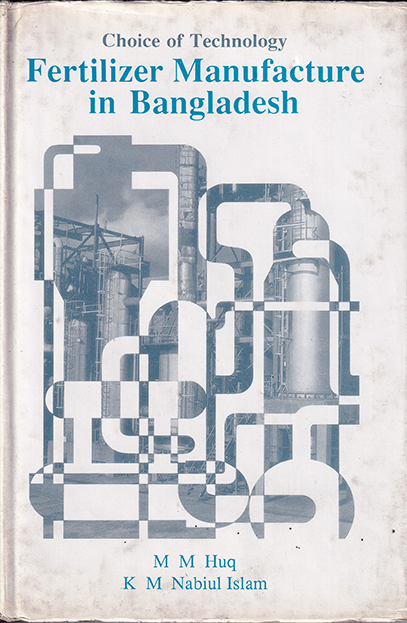
- Shop
- Choice of Technology: Fertilizer Manufacture in Bangladesh
Choice of Technology: Fertilizer Manufacture in Bangladesh
| Language: English |
Tags :
Book Info
This book, second in a series of studies under a ‘Technology Choice Project’ at BIDS, examines in some depth the extent of technology transfer that has taken place in the Bangladesh Fertilizer Industry. It appears that the technology transfer process has remained more or less confined to the acquisition of production capability; that project preparation and appraisal were generally inadequate, and that local participation and implementation in project design was nil or negligible. An important point emerging from the transfer process is the strong link between the source of machinery and equipment and the source of foreign aid, and the even stronger connection between the source of foreign aid and that of the general contractor. In this process, Bangladesh has largely failed in acquiring technological capability in the manufacture of fertilizer, inspite of its heavy involvement in the industry over the last thirty years, in six major investment undertaking, in some years even drawing as high as three-quarters of the total public sector investment undertaking, in some years even drawing as high as three-quarters of the total public sector investment in manufacturing. It is hoped that the findings will help the policymakers in redefining the policy framework, thus helping, among other things in a closer involvement of the local expertise and a larger participation of the domestic machinery manufacturing sector, besides obtaining least-out technologies at competitive prices.

K. M. Nabidul Islam
K.M. Nabiul Islam, Research Fellow in Bangladesh Institute of Development Studies (BIDS), is currently carrying out research at Middlesex University, London, UK. He obtained higher education in National Economic Planning from Warsaw, Poland (1976-77) and in Rural Research and Rural Policy from Sussex, UK (1987). He is the author of a number of publications and books including Choice of Technology: Leather Manufacturing in Bangladesh (UPL, Dhaka 1990) and Fertilizer Manufacture in Bangladesh (UPL, 1992).

কে এম নাবিদুল ইসলাম
K.M. Nabiul Islam, Research Fellow in Bangladesh Institute of Development Studies (BIDS), is currently carrying out research at Middlesex University, London, UK. He obtained higher education in National Economic Planning from Warsaw, Poland (1976-77) and in Rural Research and Rural Policy from Sussex, UK (1987). He is the author of a number of publications and books including Choice of Technology: Leather Manufacturing in Bangladesh (UPL, Dhaka 1990) and Fertilizer Manufacture in Bangladesh (UPL, 1992).

M. Mozammel Huq
Dr. M.M. Huq, who teaches Economics at the University of Strathciyde, Glasgow, is currently Associate Director of the Developing Counthes Research Unit of the same university. Since the mid-1970s he has been closely involved in examining the transfer of technology to a number of developing countries in Asia and Africa. He is the author of various articles and books including Choice of Technique in Leather Manufacture (Scottish Academic Press, Edinburgh 1981); Machine Tool Production in Developing Countries (Scottish Academic Press, Edinburgh 1983); and The Economy of Ghana: The First 25 Years Since independence (Macmillan, London 1989).

এম মোজ্জামেল হক
Dr. M.M. Huq, who teaches Economics at the University of Strathciyde, Glasgow, is currently Associate Director of the Developing Counthes Research Unit of the same university. Since the mid-1970s he has been closely involved in examining the transfer of technology to a number of developing countries in Asia and Africa. He is the author of various articles and books including Choice of Technique in Leather Manufacture (Scottish Academic Press, Edinburgh 1981); Machine Tool Production in Developing Countries (Scottish Academic Press, Edinburgh 1983); and The Economy of Ghana: The First 25 Years Since independence (Macmillan, London 1989).


